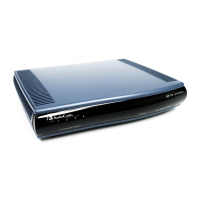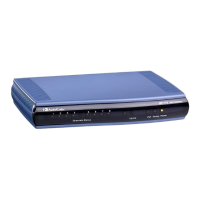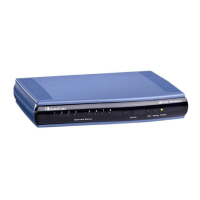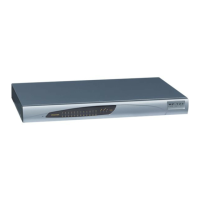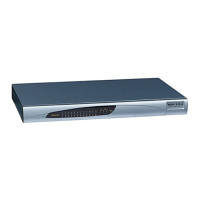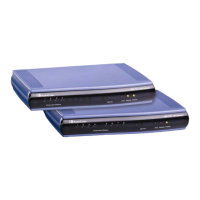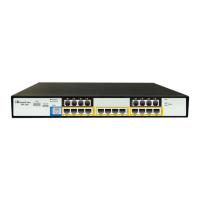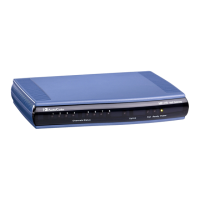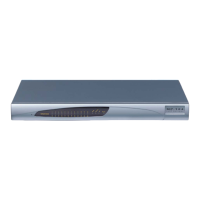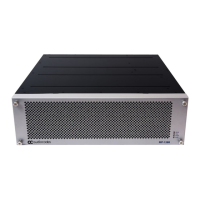User's Manual 480 Document #: LTRT-65422
MP-11x & MP-124
[0] = (Default) No Cisco gateway exists at the remote side.
[1] = A Cisco gateway exists at the remote side.
When a Cisco gateway exists at the remote side, the device must set
the value of the 'annexb' parameter of the fmtp attribute in the SDP to
'no'. This logic is used if the parameter EnableSilenceCompression is
set to 2 (enable without adaptation). In this case, Silence Suppression is
used on the channel but not declared in the SDP.
Note: The IsCiscoSCEMode parameter is applicable only when the
selected coder is G.729.
Web: User-Agent
Information
EMS: User Agent Display
Info
[UserAgentDisplayInfo]
Defines the string that is used in the SIP User-Agent and Server
response headers. When configured, the string <UserAgentDisplayInfo
value>/software version' is used, for example:
User-Agent: myproduct/v.6.40.010.006
If not configured, the default string, <AudioCodes product-
name>/software version' is used, for example:
User-Agent: Audiocodes-Sip-Gateway-
MediaPack/v.6.40.010.006
The maximum string length is 50 characters.
Note: The software version number and preceding forward slash (/)
cannot be modified. Therefore, it is recommended not to include a
forward slash in the parameter's value (to avoid two forward slashes in
the SIP header, which may cause problems).
Web/EMS: SDP Session
Owner
[SIPSDPSessionOwner]
Defines the value of the Owner line ('o' field) in outgoing SDP
messages.
The valid range is a string of up to 39 characters. The default is
'AudiocodesGW'.
For example:
o=AudiocodesGW 1145023829 1145023705 IN IP4
[EnableSDPVersionNego
tiation]
Enables the device to ignore new SDP re-offers (from the media
negotiation perspective) in certain scenarios (such as session expires).
According to RFC 3264, once an SDP session is established, a new
SDP offer is considered a new offer only when the SDP origin value is
incremented. In scenarios such as session expires, SDP negotiation is
irrelevant and thus, the origin field is not changed.
Even though some SIP devices don’t follow this behavior and don’t
increment the origin value even in scenarios where they want to re-
negotiate, the device can assume that the remote party operates
according to RFC 3264, and in cases where the origin field is not
incremented, the device does not re-negotiate SDP capabilities.
[0] Disable = (Default) The device negotiates any new SDP re-offer,
regardless of the origin field.
[1] Enable = The device negotiates only an SDP re-offer with an
incremented origin field.
Web/EMS: Subject
[SIPSubject]
Defines the Subject header value in outgoing INVITE messages. If not
specified, the Subject header isn't included (default).
The maximum length is up to 50 characters.
[CoderPriorityNegotiatio
n]
Defines the priority for coder negotiation in the incoming SDP offer,
between the device's or remote UA's coder list.
[0]
= (Default) Coder negotiation is given higher priority to the remote
UA's list of supported coders.
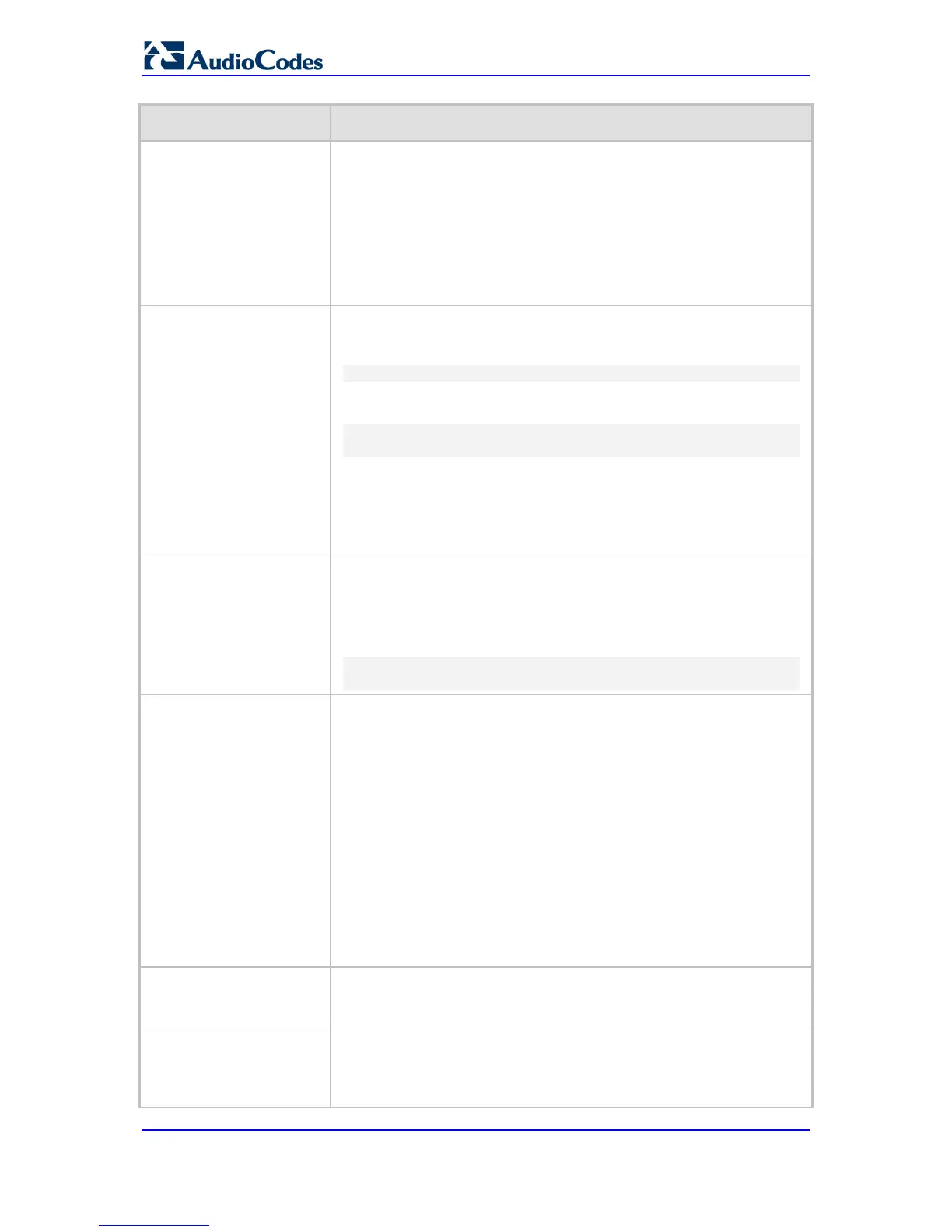